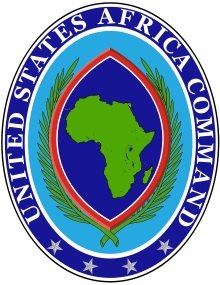I focus on 4 major challenges for malaria control with which economics can assist: In the first chapter I use optimal control and dynamic programming techniques to focus on the problem of insecticide resistance in malaria control, and to understand how different models of mosquito evolution can affect our policy prescriptions for dealing with the problem of insecticide resistance. In the 2nd chapter, I consider the interaction between parasite resistance to drugs and mosquito resistance to insecticides, and use a mass-action epidemiological model to analyze cost-effective malaria control portfolios that balance these 2 dynamics. In the 3rd chapter, I analyze results from a discrete choice experiment (DCE) of households in northern Uganda to elicit preferences for different attributes of indoor residual spraying programs (IRS) to control malaria-transmitting mosquitoes. In particular, I evaluate: (a) the elasticity of household participation levels in IRS programs with respect to malaria risk; and (b) households’ perceived value of programs aimed at reducing malaria risk, such as IRS.
Category: Africa
Africom: Not Ready for Prime Time?
The [Benghazi] assault, on the anniversary of the Sept. 11, 2001 attacks on the United States, has already exposed shortcomings in the Obama administration’s ability to secure diplomatic missions and act on intelligence warnings. But this previously undisclosed episode, described by several American officials, points to a limitation in the capabilities of the American military command responsible for a large swath of countries swept up in the Arab Spring.
At the heart of the issue is the Africa Command, established in 2007, well before the Arab Spring uprisings and before an affiliate of Al Qaeda became a major regional threat. It did not have on hand what every other regional combatant command has: its own force able to respond rapidly to emergencies — a Commanders’ In-Extremis Force, or CIF.
To respond to the Benghazi attack, the Africa Command had to borrow the CIF that belongs to the European Command, because its own force is still in training. It also had no AC-130 gunships or armed drones readily available.
As officials in the White House and Pentagon scrambled to respond to the torrent of reports pouring out from Libya — with Mr. Stevens missing and officials worried that he might have been taken hostage — they took the extraordinary step of sending elite Delta Force commandos, with their own helicopters and ground vehicles, from their base at Fort Bragg, N.C., to Sicily. Those troops also arrived too late.
From an excellent article in the New York Times last weekend on how Africom — the United States Africa Command — is not ready for prime time because it is understaffed.

#SWEDOW on Steroids
The One Laptop Per Child organization is trying something new in two remote Ethiopian villages — simply dropping off tablet computers with pre-loaded programs and seeing what happens.
The goal: to see if illiterate kids with no previous exposure to written words can learn how to read all by themselves, by experimenting with the tablet and its preloaded alphabet-training games, e-books, movies, cartoons, paintings, and other programs.